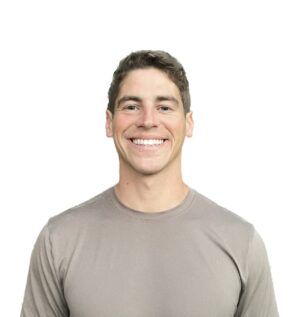 Before Reed was an official M&T, he was an M&TSI student, and he recently visited campus to meet with this year’s students and talk about his career. Herewith he discusses his career, where he hopes to be in the next five to ten years, and his advice for current students.
Before Reed was an official M&T, he was an M&TSI student, and he recently visited campus to meet with this year’s students and talk about his career. Herewith he discusses his career, where he hopes to be in the next five to ten years, and his advice for current students.
Q: Why did you apply to the M&T Program?
RG: When I was in high school, I attended the M&TSI Program (M&T’s Summer Institute is a rigorous, fast-paced, for-credit summer program for rising high school seniors and select juniors). I grew up always wanting to be an engineer. I was fascinated by cars, bridges, and tunnels, and knew I wanted to build something big. But as I got older, I realized the power of business, that you need a market to have people buy whatever you’re building and the connection there. In high school, I thought I was going to go to engineering school and then would pursue the business side of things after that – but then I heard about the M&T Program. When I learned I could do everything in four years and leave school with the combination of business and technology and be better positioned to achieve my goals, I knew I had to apply.
Q: Can you talk about your role at SpaceX?
RG: I am currently working on the biggest rocket ever created. The hope is that one day, it will go to Mars and eventually, colonize Mars. Right now, there are some milestones towards which we are working. First, we must get the rocket to fly, then it must orbit the earth, and then hopefully it can get to the Moon and Mars. It’s called Starship and it’s a groundbreaking rocket that will one day create interplanetary life so humans can live on other planets. On April 20, 2023, it had its first flight, and it was an incredible experience for me to watch it in person – especially as I have been working on it since its inception. It exploded a few minutes into flight, but it was very cool, nonetheless. This was still a giant step forward toward our eventual goal. Now we are working on figuring out what went wrong and tweaking the next model to see if it will go further. It’s called the Build-Test-Fly model and we are basically going to keep tweaking it and keep going until it works.
Q: How did you make your way to SpaceX?
RG: After I graduated from M&T, I stayed at Penn for a fifth year and went to grad school for my Masters in Robotics. From there I got a job at SpaceX in mechanism design for satellites, and have been there ever since, transitioning roles into Starship and gaining more experience.
Q: How did the M&T Program prepare you for the role you have today and your current career trajectory?
RG: Right now, I’m an engineering manager and I have a team of mechanical engineers that report to me. My concentration at Wharton was Management and though I was young in my interview process with SpaceX, I was able to point back to my time at Penn from the M&T Program to demonstrate that managing a team of people was something I could handle.
The program has made a huge impact on my life – even still to this day. It’s very unique. You rarely meet anyone else with the same background as you – unless they were an M&T. When you apply to jobs, the program holds high value with employers. It also gives you one of the most unique backgrounds and skill sets where you can pivot at any point in your career and feel confident to do so.
Q: Where do you see yourself in the next 5-10 years?
RG: My dream is to one day start a hardware company or be part of a founding team of a hardware company. Whether that’s five or ten years down the line, having the ability to speak both engineering and business languages will give me the ability to do that.
Q: Do you have any advice for M&T students as they prepare for their last year in the program and look ahead to the future?
RG: Build something outside of class. It’s very hard to stand out in the job interview process, especially if you’re a hardware engineer and you take all the classes that everyone else takes. It’s also important to follow what you personally think is exciting and cool and do what you enjoy doing. For example, I loved engineering and mechanical engineering – but they weren’t the ‘cool’ subjects to pursue when I was at Penn. Everyone wanted to go into consulting, finance, or software. But I stuck with what I loved, and it paid off for me in the long run.
It’s also important for recent grads to remember that once you graduate, you’re back to being the one who doesn’t really know anything. Your new boss doesn’t expect you to know everything. Ask as many questions as you need to when you start, be comfortable asking for help, and push for a strong mentor who can help as you start out and eventually navigate additional roles and pivots.


